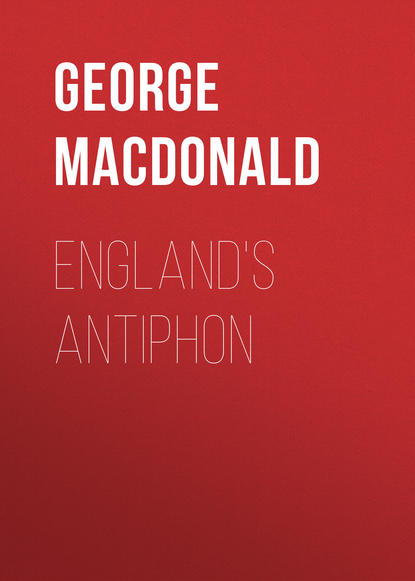По всем вопросам обращайтесь на: info@litportal.ru
(©) 2003-2025.
✖
England's Antiphon
Настройки чтения
Размер шрифта
Высота строк
Поля
I now come to the most musical and most graceful, therefore most lyrical, of his poems. I have left out just three stanzas, because of the sentimentalism of which I have spoken: I would have left out more if I could have done so without spoiling the symmetry of the poem. My reader must be friendly enough to one who is so friendly to him, to let his peculiarities pass unquestioned—amongst the rest his conceits, as well as the trifling discord that the shepherds should be called, after the classical fashion—ill agreeing, from its associations, with Christian song—Tityrus and Thyrsis.
A HYMN OF THE NATIVITY SUNG BY THE SHEPHERDS
Chorus. Come, we shepherds, whose blest sight
Hath met love's noon in nature's night;
Come, lift we up our loftier song,
And wake the sun that lies too long.
To all our world of well-stolen[140 - How unpleasant conceit can become. The joy of seeing the Saviour was stolen because they gained it in the absence of the sun!] joy
He slept, and dreamed of no such thing,
While we found out heaven's fairer eye,
And kissed the cradle of our king:
Tell him he rises now too late
To show us aught worth looking at.
Tell him we now can show him more
Than he e'er showed to mortal sight—
Than he himself e'er saw before,
Which to be seen needs not his light:
Tell him, Tityrus, where thou hast been;
Tell him, Thyrsis, what thou hast seen.
Tityrus. Gloomy night embraced the place
Where the noble infant lay:
The babe looked up and showed his face:
In spite of darkness it was day.
It was thy day, sweet, and did rise
Not from the east, but from thy eyes.
Chorus. It was thy day, sweet, &c.
Thyrsis. Winter chid aloud, and sent
The angry north to wage his wars:
The north forgot his fierce intent,
And left perfumes instead of scars.
By those sweet eyes' persuasive powers,
Where he meant frosts, he scattered flowers.
Chorus. By those sweet eyes', &c.
Both. We saw thee in thy balmy nest,
Young dawn of our eternal day;
We saw thine eyes break from the east,
And chase the trembling shades away.
We saw thee, and we blessed the sight;
We saw thee by thine own sweet light.
Chorus. We saw thee, &c.
Tityrus. "Poor world," said I, "what wilt thou do
To entertain this starry stranger?
Is this the best thou canst bestow—
A cold and not too cleanly manger?
Contend, the powers of heaven and earth,
To fit a bed for this huge birth."
Chorus. Contend, the powers, &c.
Thyrsis. "Proud world," said I, "cease your contest,
And let the mighty babe alone:
The phoenix builds the phoenix' nest—
Love's architecture is his own.
The babe, whose birth embraves this morn,
Made his own bed ere he was born."
Chorus. The babe, whose birth, &c.
Tityrus. I saw the curl'd drops, soft and slow,
Come hovering o'er the place's head,
Offering their whitest sheets of snow
To furnish the fair infant's bed:
"Forbear," said I; "be not too bold:
Your fleece is white, but 'tis too cold."
Chorus. "Forbear," said I, &c.
Thyrsis. I saw the obsequious seraphim
Their rosy fleece of fire bestow;
For well they now can spare their wings,
Since heaven itself lies here below.
"Well done," said I; "but are you sure
Your down, so warm, will pass for pure?"
Chorus. "Well done," said I, &c.
* * * * *
Full Chorus. Welcome all wonders in one sight!
Eternity shut in a span!
Summer in winter! day in night!
Heaven in earth, and God in man!
Great little one, whose all-embracing birth
Lifts earth to heaven, stoops heaven to earth!
* * * * *
Welcome—though not to those gay flies
Gilded i' th' beams of earthly kings—
Slippery souls in smiling eyes—
But to poor shepherds, homespun things,
Whose wealth's their flocks, whose wit's to be
Well read in their simplicity.
Yet when young April's husband showers
Shall bless the fruitful Maia's bed,
We'll bring the firstborn of her flowers
To kiss thy feet, and crown thy head:
To thee, dear Lamb! whose love must keep
The shepherds while they feed their sheep.











